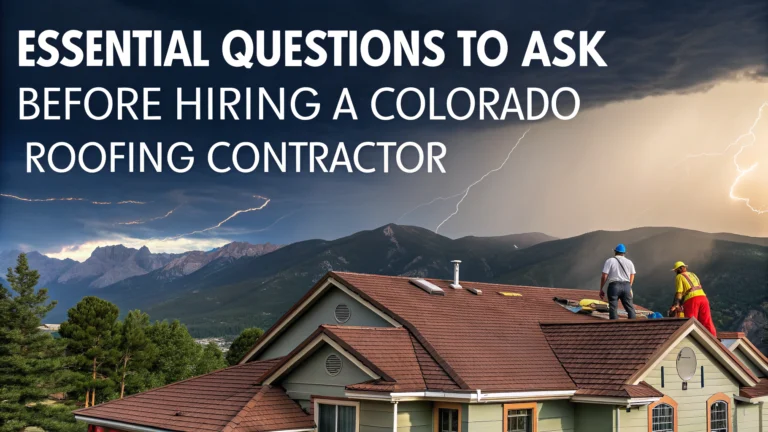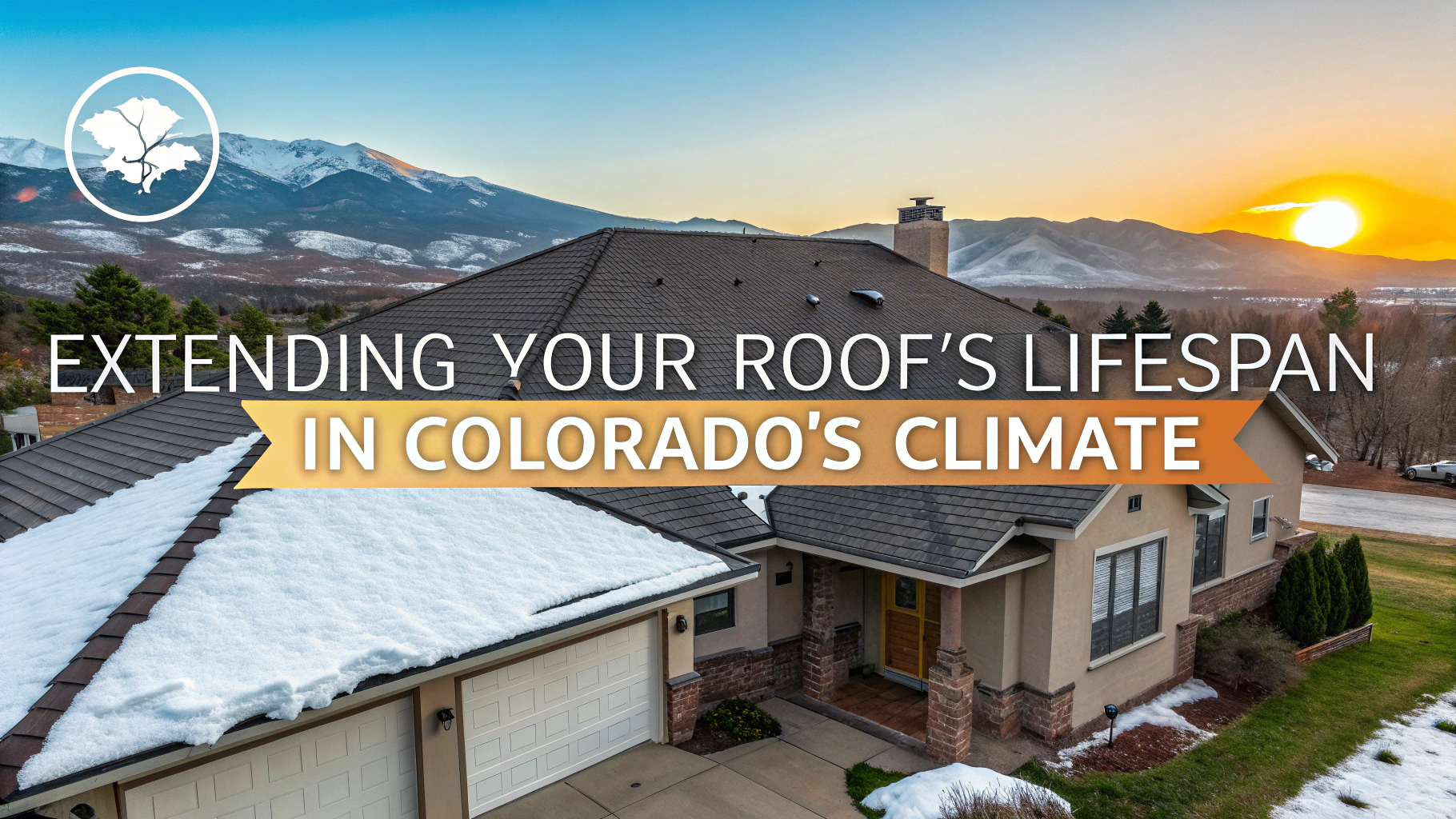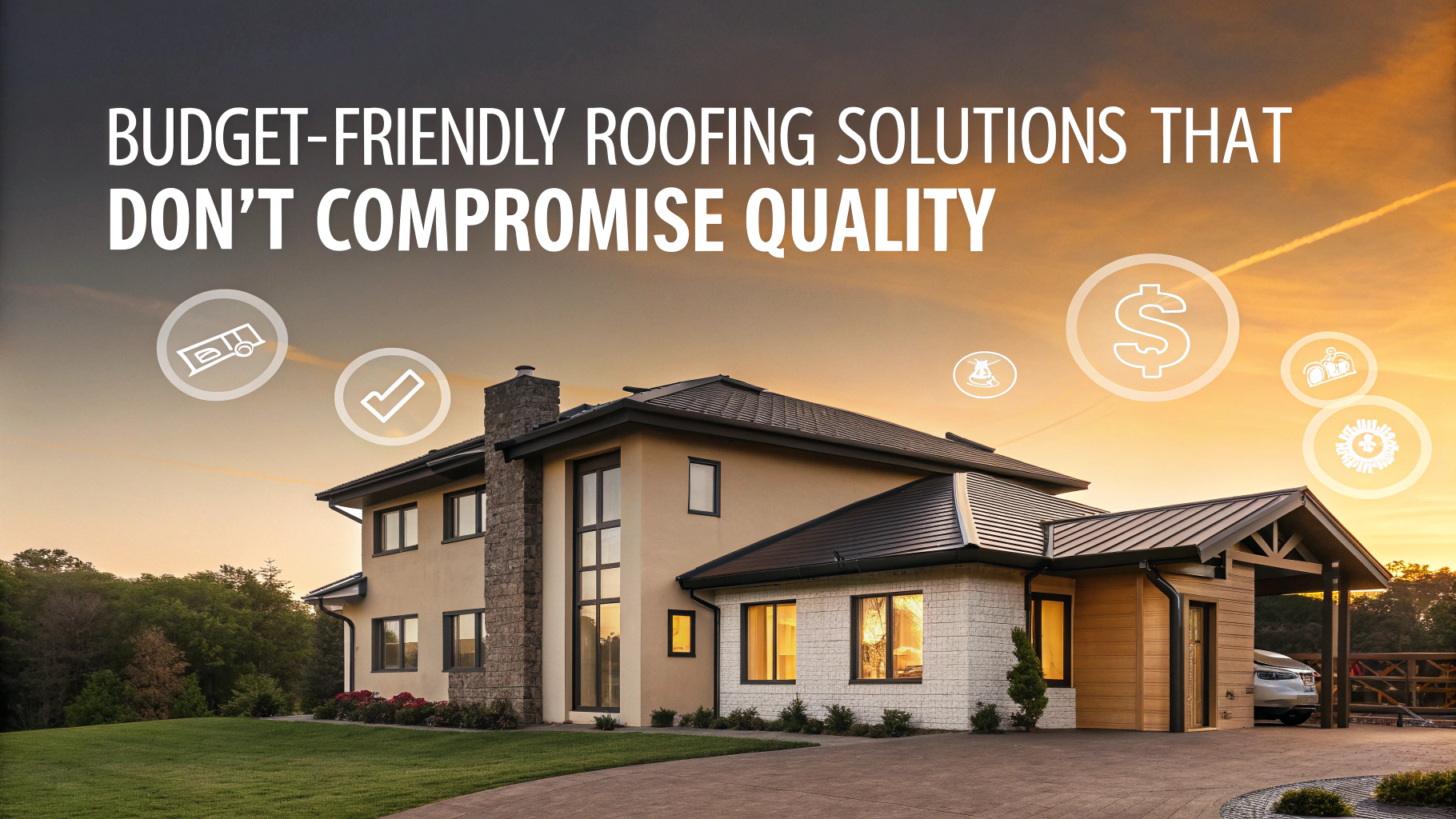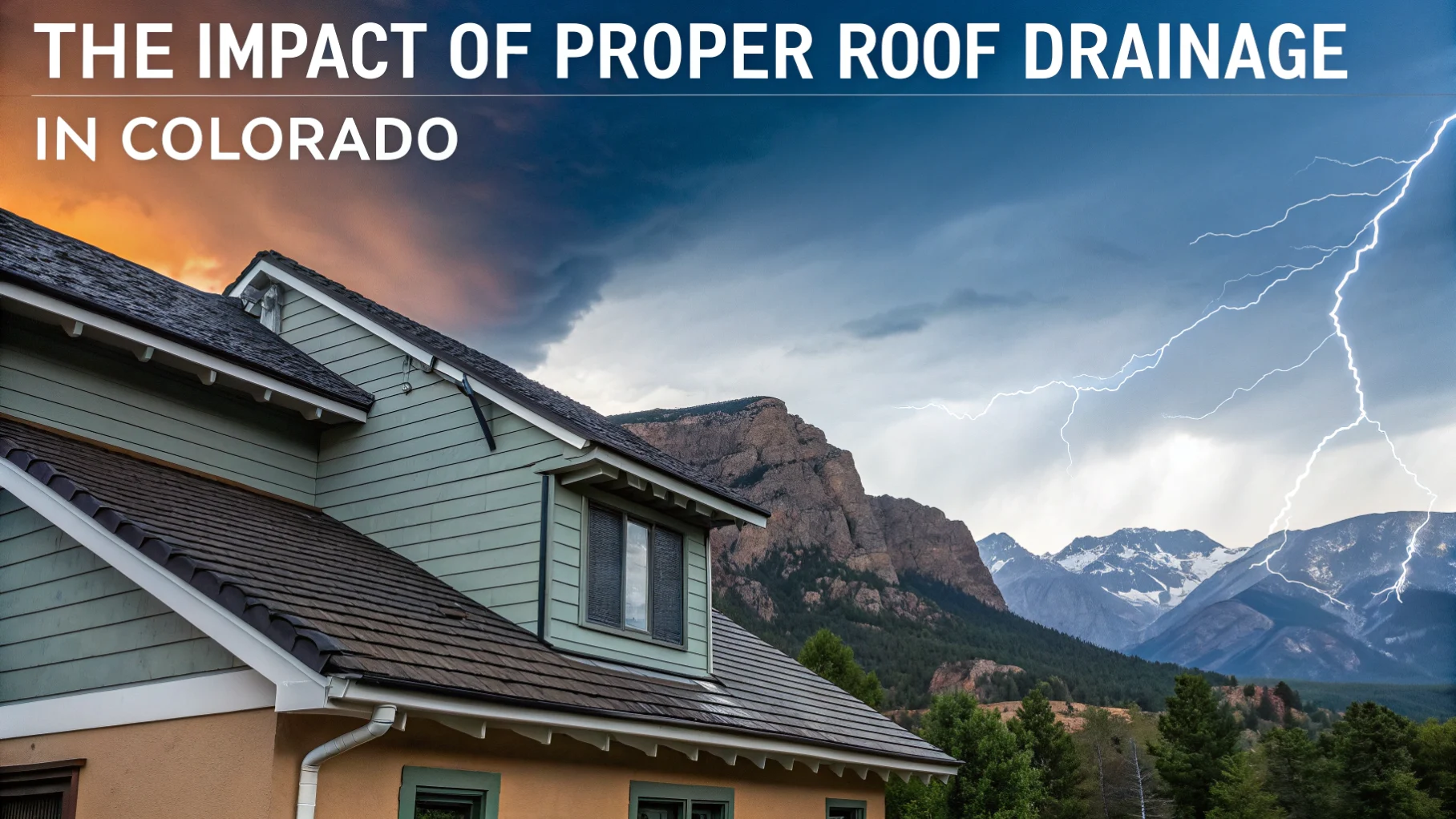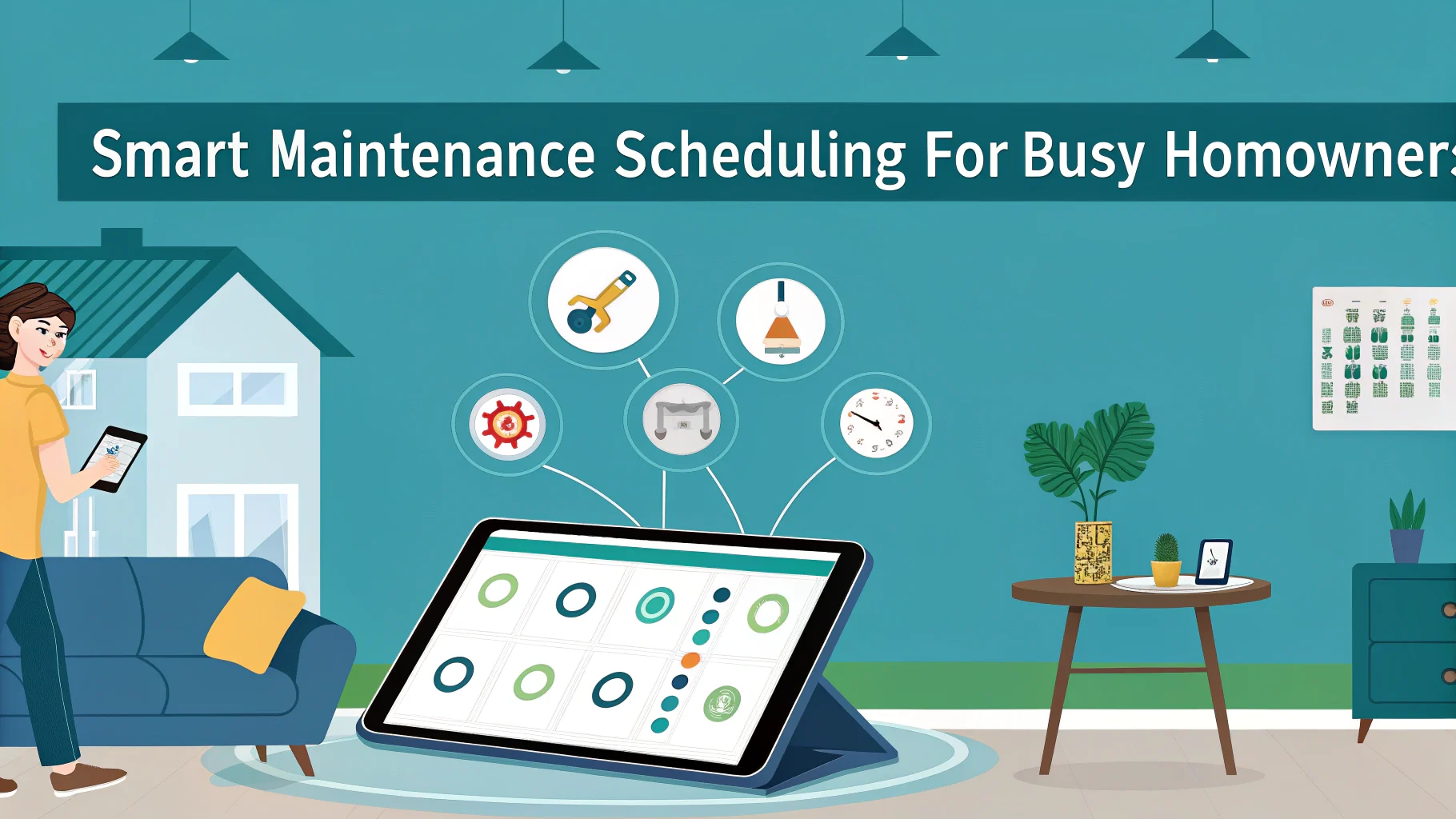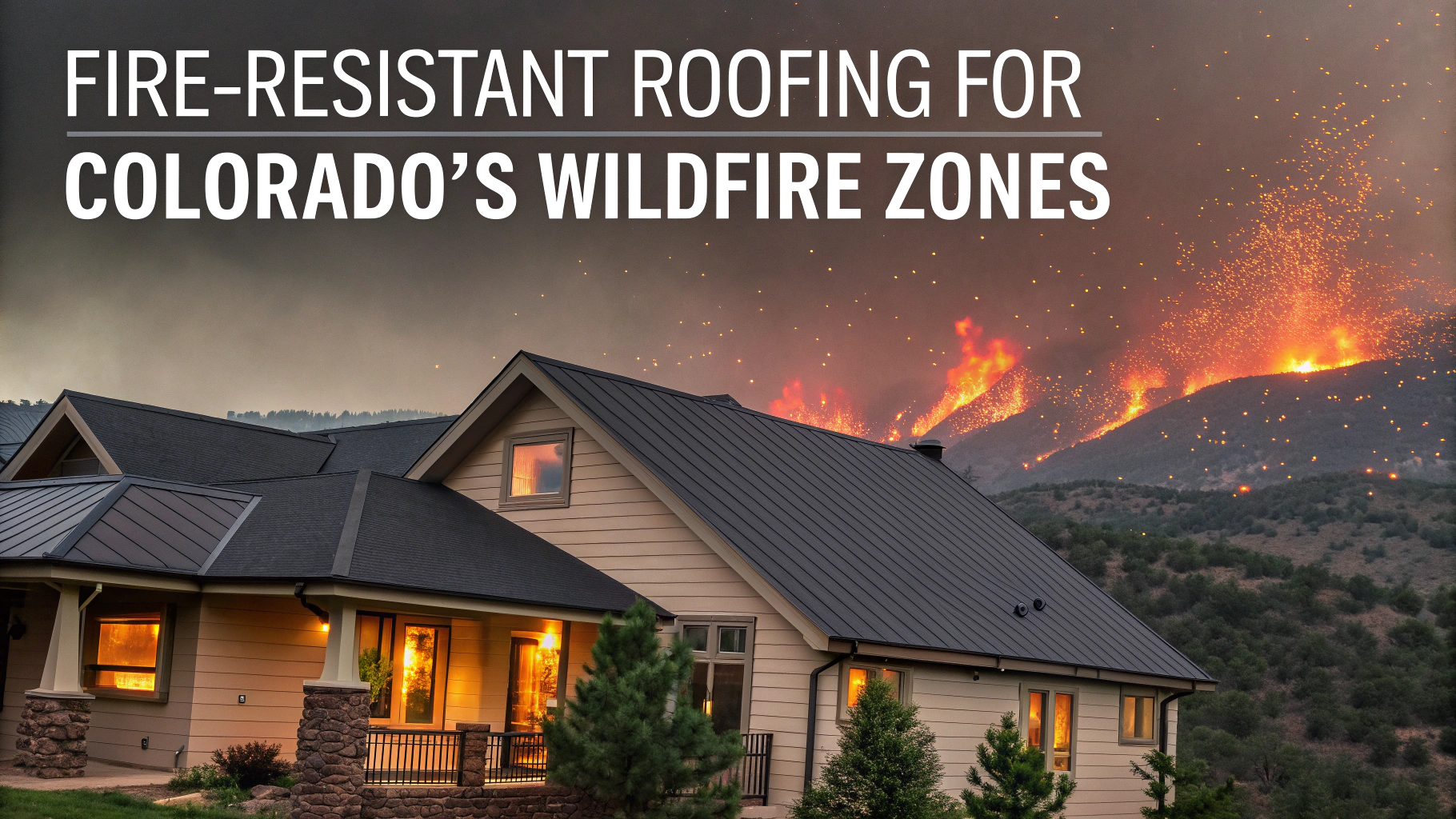Selecting the right roofing contractor in Colorado requires careful consideration due to the state’s unique weather challenges and building requirements.
Colorado homeowners face extreme temperature swings, heavy snowfall, hail storms, and intense UV exposure that can significantly impact roof performance and longevity.
This quick guide outlines the essential questions to ask potential roofing contractors, helping you make an informed decision for your roof repair or replacement project.
License and Insurance Requirements
Ask the contractor to provide proof of their current Colorado state roofing license and insurance coverage.
- General liability insurance (minimum $1,000,000 coverage)
- Workers’ compensation insurance
- Valid Colorado roofing contractor license number
- Local business permits for your specific county/city
Experience with Colorado Weather Conditions
Request information about their experience handling Colorado-specific roofing challenges.
- Snow load management solutions
- Ice dam prevention techniques
- Hail damage repair expertise
- High-altitude installation experience
Material Selection and Warranty Options
Get detailed information about available roofing materials and their warranties.
- Manufacturer warranties on materials
- Workmanship warranty terms
- Material options suited for Colorado climate
- Energy-efficient roofing solutions
Project Timeline and Process
Understand the expected timeline and steps involved in your roofing project.
- Estimated start and completion dates
- Weather contingency plans
- Daily clean-up procedures
- Project management contact information
Cost and Payment Structure
Request a detailed written estimate that includes all project costs.
- Payment schedule
- Material cost breakdown
- Labor charges
- Permit fees
Local References and Past Projects
Ask for references from recent local projects, particularly ones similar to yours.
- Contact information for past clients
- Photos of completed projects
- Online reviews and ratings
- Better Business Bureau standing
Emergency Response Protocol
Confirm their availability for emergency repairs and response time.
- 24/7 emergency contact number
- Standard response time
- Emergency repair capabilities
- After-hours service rates
Permit and Code Compliance
Verify their knowledge of local building codes and permit requirements.
- Building permit acquisition process
- Local code compliance understanding
- HOA approval assistance
- Required inspections coordination
Crew Qualifications
Inquire about the training and certification of their roofing crews.
- Safety training certifications
- Manufacturer installation certifications
- Background check policies
- Crew supervisor experience
Making Your Final Decision
Compare at least three contractor quotes before making your selection.
- Review all written documentation thoroughly
- Verify insurance and licensing personally
- Check references and past project photos
- Trust your instincts about contractor communication and professionalism
For additional assistance, contact the Colorado Roofing Association at (303) 484-0549 or visit their website at coloradoroofing.org.
Contract Review and Documentation
Before signing any agreements, carefully review all contract documentation and ensure it includes crucial details.
- Scope of work specifications
- Material quality standards
- Cleanup and disposal procedures
- Change order processes
Quality Control Measures
Understand how the contractor maintains quality throughout the project.
- Project supervision protocols
- Inspection checkpoints
- Documentation procedures
- Quality assurance standards
Post-Installation Support
Clarify what support is available after project completion.
- Maintenance recommendations
- Annual inspection services
- Warranty claim procedures
- Long-term care guidelines
Securing Your Roofing Investment
Taking time to thoroughly evaluate potential contractors protects your investment and ensures quality results.
- Keep all project documentation on file
- Schedule regular maintenance inspections
- Maintain warranty records
- Document any post-installation communications
FAQs
- What licenses and insurance does your roofing company carry in Colorado?
Every legitimate Colorado roofing contractor must carry general liability insurance and workers’ compensation insurance. They should also have proper licensing for specific municipalities where they operate. - How long has your company been working in Colorado’s specific climate conditions?
Experience with Colorado’s unique weather patterns, including heavy snow, hail, and dramatic temperature changes, is crucial for proper roof installation and maintenance. - Can you provide local references and examples of completed projects in Colorado?
Reputable contractors should provide references from recent local projects and addresses of completed work in your area. - What warranties do you offer for both materials and labor?
Professional contractors should offer manufacturer warranties on materials (typically 25-30 years) and their own warranty on workmanship (typically 2-10 years). - How do you handle Colorado’s building permit requirements?
The contractor should handle all permit applications and ensure compliance with local building codes and regulations. - What is your protocol for unexpected weather during the roofing project?
They should have clear procedures for protecting exposed areas during Colorado’s unpredictable weather and scheduling around adverse conditions. - How do you ensure compliance with Colorado’s specific roofing codes and regulations?
Contractors must follow state-specific requirements, including the Colorado Roofing Association guidelines and local building codes. - What is your policy on roof inspections and maintenance after installation?
A quality contractor should offer post-installation inspections and have a clear maintenance program, especially important in Colorado’s severe weather conditions. - How do you handle insurance claims for hail or storm damage?
The contractor should be experienced in working with insurance companies and familiar with Colorado’s specific insurance claim processes for weather-related damage. - What materials do you recommend for Colorado’s climate?
They should suggest materials proven to withstand Colorado’s extreme temperature changes, high UV exposure, and frequent hail storms.
